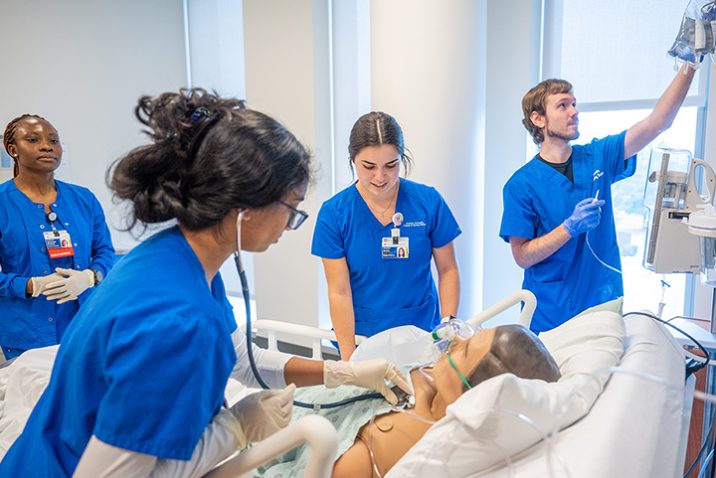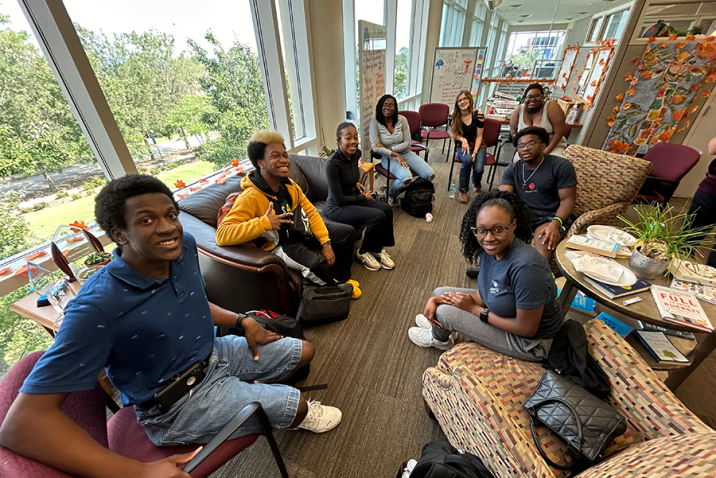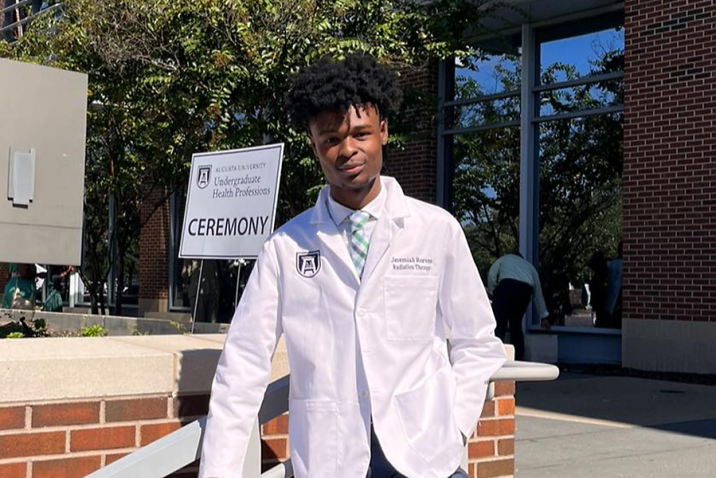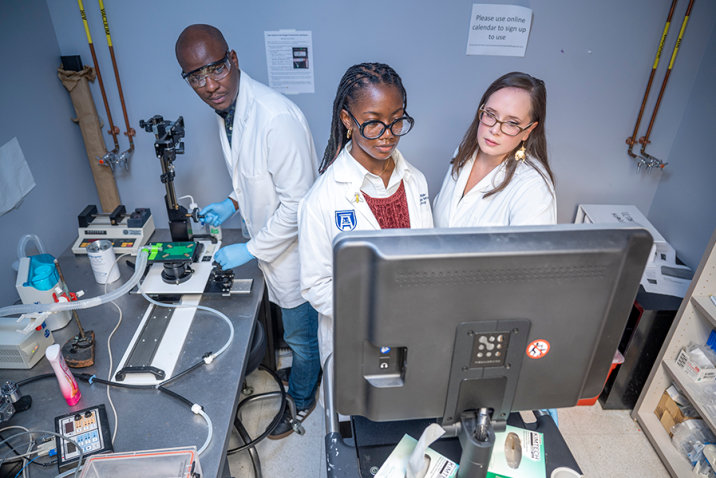Faculty Club awards five $2K scholarships to health sciences students
“This scholarship will assist in covering my daily expenses and enable me to continue my volunteer work, both locally and internationally,” says Evan Boland.
Do you see yourself at the intersection of health care and technology?
Heath information professionals are responsible for managing and protecting personal health information and serve as advocates of the patient-provider relationship. The health information administration program from the College of Allied Health Sciences’ Department of Allied Health Professions helps prepare students for this rewarding career.
Augusta University is Georgia’s Health Sciences Center of Excellence, and we offer an experience like no other. Join us to become tomorrow’s health care professionals today.
Health Information Administration is for you if you consider yourself
Healing
like no
other.
Want to learn more about the Health Information Administration program at Augusta University?
Request InfoWhat You'll Study
In the Health Information Administration program, you will study things like medical terminology, health care management, health law and ethics, and health informatics.
Course List | Track Sheet | Prerequisites & Deadlines | Accreditation
Experience-based Education
Students in the Health Information Administration program are encouraged to gain additional experience by shadowing a health information professional or working in a position in the field.
As one of Georgia’s four research universities, research is always a priority, and students have a variety of opportunities to present their research, including the annual professional meetings of the Georgia Public Health Association and the Georgia Health Information Management Association.
Collaboration among professionals in health informatics and health system management improves human health and enhances quality of life.
Whether you're an undergrad or graduate student, you'll have opportunities to create your own research projects or work with faculty to tackle some of the world's most complex and pressing challenges.
Academic health centers teach tomorrow's health care professionals, and the only way to do this is to stay on top of the latest treatments and tools for a culture of continuous learning.
Your Future
Graduates of the Health Information Administration program have the skills and experience necessary to work in traditional hospital settings as well as in public health systems and non-traditional settings that use electronic health information. Program graduates have worked in the Department of Defense Medical system, the Centers for Disease Control and Prevention, the Veterans Health Administration system and as president and CEO of the American Health Information Management Association.
As the health sector expands, health information administration professionals are expected to remain in high demand. According to the U.S. Bureau of Labor Statistics, health information technology is one of the 20 fastest growing occupations in the nation. More than half of new health information administration graduates with bachelor’s degrees start with salaries in the $30,000 to $50,000 range, with the potential to earn from $50,000 to $75,000 in five years.

Learning Like No Other
Faculty members possess more than 55 years of professional experience and additional credentials in the field of health information administration.
Research opportunities provide valuable experience that can help you stand out from the crowd.
A 94% program retention rate means students are excited about their education, and a 93% satisfaction rate among graduates means that excitement was well founded.
Graduates are eligible to sit for the AHIMA national registration examination and, upon passing, using the Registered Health Information Administration (RHIA) designation after their name.

“This scholarship will assist in covering my daily expenses and enable me to continue my volunteer work, both locally and internationally,” says Evan Boland.

“I think processing their experiences out loud gave them grace and space to acknowledge their own grit in times of stress,” says Beth Huggins, EdD.

"He never takes anything for granted and is always seeking more opportunities to learn more about the profession that he has chosen to go into,” said Kevin Kindle.

“The collaborative nature of AU has been so important in progressing our research and everything that we do," said Briah Bailey.